Lush founder: ‘I’m a hippy soap-maker and a nerd – I didn’t fit in to a violent world’
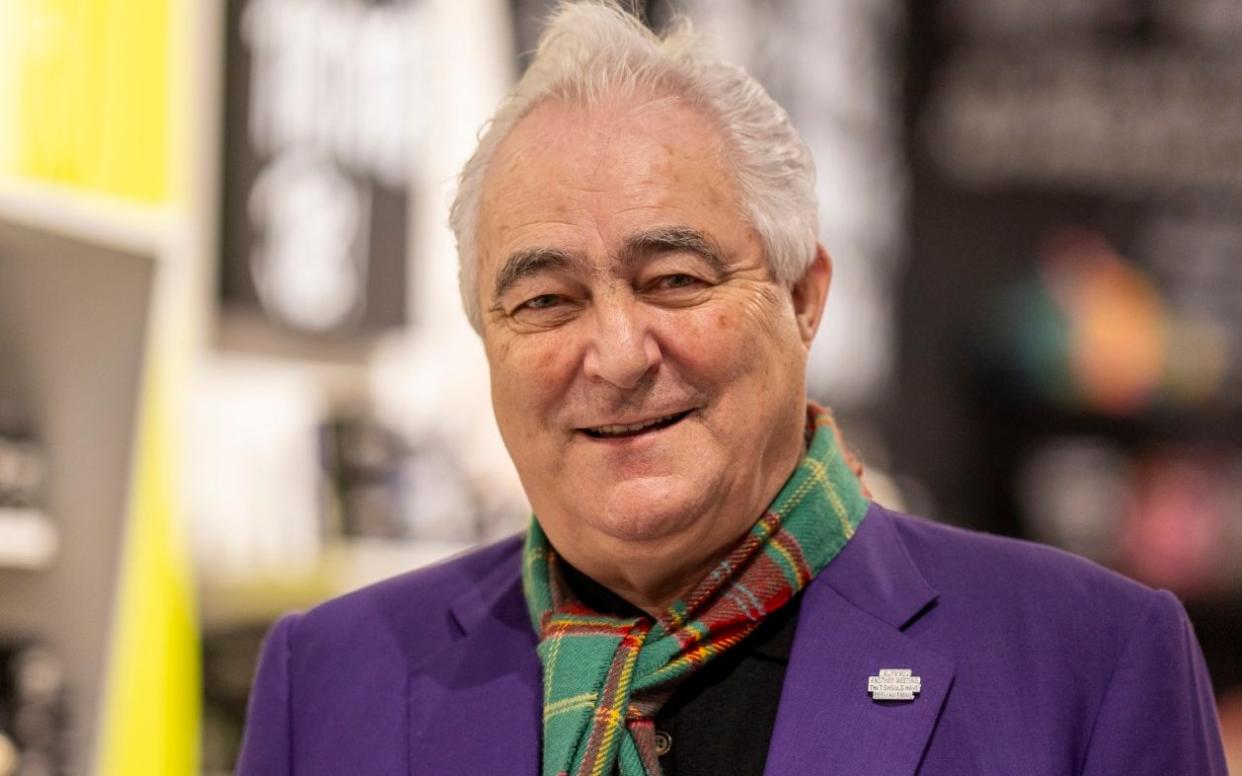
It’s never very easy for Mark Constantine to get around at the Lush headquarters in Poole. As the co-director and co-founder of the Dorset-based ethical cosmetics company, he comes in a few times a week for meetings, and despite a tightly-constructed schedule, gets easily waylaid. People and things catch his eye or, more likely, he catches theirs.
“When people see me they go: oh, Mark? Five minutes?” he huffs. Constantine is around 6ft 5ins, heavy-set, with thick, wiry eyebrows, a flash of white hair and wears suits Laurence Llewelyn-Bowen might deem “a bit much”. Today’s is a bespoke Atelier Arena number in Quality Street purple.
The offices themselves are a riot of colour, with dummy shops, archive walls and many of its best-selling products – from bath bombs to its Charity Pot body lotion – displayed with pride. Still, he might, I venture, be able to sneak around a little more easily if he didn’t look quite so conspicuous.
Constantine laughs, a sonic boom of a chuckle. “Maybe. But I’m not sure it’d make any difference.” He’s also fond of an ironic lapel badge. It changes daily. “I survived another meeting that should have been an email” is currently in service. During the pandemic he wore: “F---, f---, f---ity f---”. But his favourite is the one that reads: “I am a massive egotistical k---head.” It’s large and yellow. “And I am a massive egotistical k---head,” he says.
If Constantine, 71, really is that full of himself, he does a very bad job of shouting about his success. In basic numbers, Lush smells radiant: over nearly 30 years, Constantine has led the business to a point where it has 104 shops in the UK and Ireland, and almost 900 worldwide, operating in 52 countries. Its last set of accounts showed a group turnover of £657 million and a brand turnover of £836 million.
As so many brands shutter shops on high streets up and down the country, in December the company announced it would spend almost £11 million on its UK stores before the end of its financial year, while it recently opened its first eco-friendly hair salon in Brighton. Constantine and his wife, Mo, another co-founder, still own 56.2 per cent of the company’s shares, and are personally said to be worth £350 million, making them one of the wealthiest self-made couples in Britain.
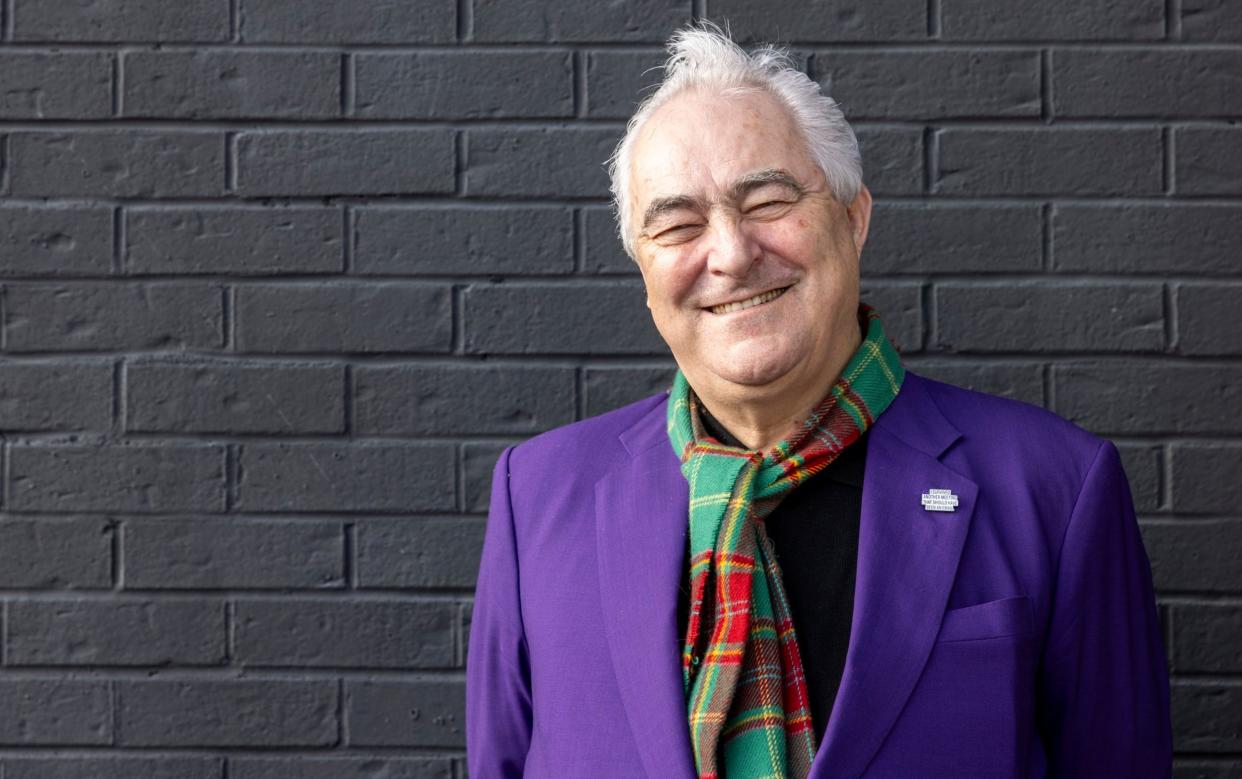
During a time not exactly associated with booming retail growth in the UK, then, Lush is a rare success story. And yet Constantine, despite being a colourful character in every way, isn’t nearly as well known as many of his peers – your Dysons, your Bransons, your Sugars. “Well, pride goes before a fall, doesn’t it?” he says, in a technicolour meeting room in Poole. “I can be the face of the brand if they force me to be, but I’m a technical entrepreneur. I like learning stuff.”
He points out, humbly, that Lush actually made a slight loss last year – but this year is “coming on nicely”. There are two reasons for the brief downturn. One is inevitable, the other tragically understandable.
“I’ve sort of realised if you want the best standards of everything – fit outs for shops, policies for mothers, whatever… you’re always going to spend everything you’ve got. And the other thing is that for me, I lost my grandson two years ago, and that knocked me a bit. I didn’t concentrate on the budget very much. People think I’m a nightmare this year because I’m so on it.”
The Constantines have three children, all of whom have served various roles within Lush: Simon, 32, is a perfumer who now runs his own company; Jack, 30, is chief digital officer; and Claire, 29, is group retail director. In 2022, Dexter Constantine-Tatchell, Jack’s seven year-old son with his wife Rachel, died from rhabdomyosarcoma, a rare childhood cancer.
They have always been a very close, growing family – everybody lives in or near Weymouth, where Mark and Mo live and sometimes host all 10 of their grandchildren, I wonder if the tragedy pulled them closer together still.
“No, I think we were closer before, in a way,” Constantine mutters, gazing at the table for a moment. “It just changes everything, that’s the point. Not for the better or for the worse, it just changes things. So then you have periods of time where, especially the mum and dad, they struggle to get over it. And they never will get over it completely.”
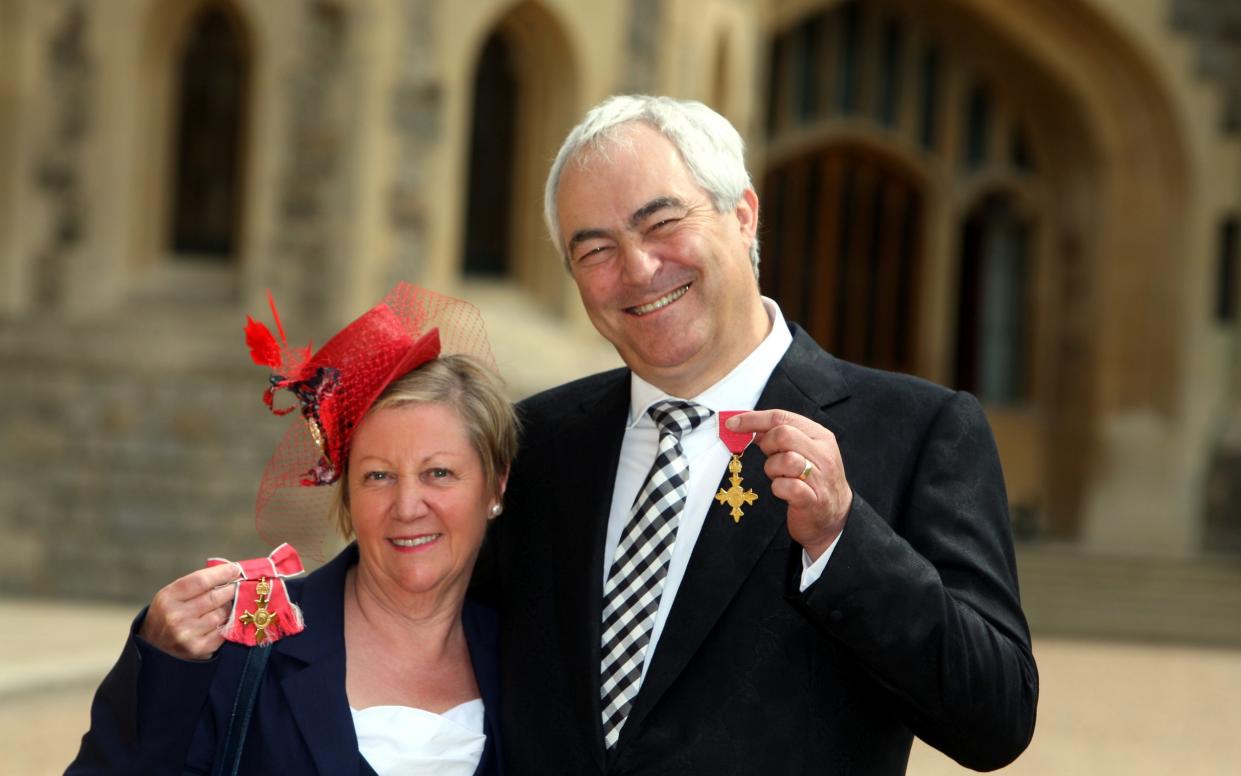
Constantine is fond of thinking about the “turns” in an entrepreneur’s life: the moments that catalyse a person’s drive or instil a certain self-belief. He has plenty of them. Born in Dorset, his father, John, abandoned the family when Constantine was two years old, leaving to join the Royal Kenyan Police with a vague plan to bring Constantine and his mother with him, though that never materialised.
Constantine searched for his father for decades. In 2013, after years of fruitlessly hiring private detectives, he eventually found him living in South Africa. Constantine gave him a “Dear John” perfume he’d created as an homage. They spent a week catching up, then made plans to meet again, but John died two months later, aged 84.
When they were abandoned, Constantine and his mother went to live with his grandmother for almost a decade, leaving when he was 11 and his mother had remarried. He had adored his grandmother, and when she died of a heart attack shortly after they left: “I’d had it with my mum and dad. I blamed them, and myself, for my nan dying. The fact I’d left her and she’d died; she was the love of my life.”
School was no easier. He went to grammar school in Poole, where: “I was caned by my headmaster, I was hit by the other teachers, there were gangs you had to be part of or you’d end up at the wrong end of a knife, there were mods and rockers fighting on the beaches… It was a very violent world and I didn’t fit in – I’m a hippy soap-maker, and a nerd. I like poetry and birdsong. I fitted every stereotype for a kid you wanted to give a kicking to.”
At home, where his stepfather was abusive, the relationship between the now teenage Constantine and his parents grew increasingly fractious. At 16, when he was “unmanageable” they threw him out. It’s often written that Constantine ran away, “but they didn’t, they just locked the door.”
Failing his GCE exams, he dropped out of school, lived in the woods with a poncho and sleeping bag, and found a job as an apprentice hairdresser, earning enough to live, but not enough to rent a place to live. “I wasn’t living in a doorway on Regent Street, it was a south coast kind of homeless,” he says. He lived like that, interspersed with occasional stays with friends or visiting the family of his future wife, whom he’d already met at an all-night party on Portland, for 18 months.
What would he say to that kid now? “Keep going, keep going. I wouldn’t even say it’ll be alright, I’d just say keep going.” And what would that kid make of this empire of soap? “I think he’d quite like it.” He is, he says, “still damaged goods” but he long ago made up with his mother. “She’s 94, I give her an allowance every month, and it’s quite generous but she takes the minimum and saves the rest for a rainy day. She’s from that generation.”
After becoming a hairdresser and gaining a home, in 1976 Constantine began hearing about Anita Roddick, who had co-founded The Body Shop with her husband, Gordon, in Brighton. In his spare time Constantine had been using his training to develop natural hair and skin products at home, and Roddick, whose alternative, ethical cosmetics business aligned exactly with his eco-conscious vision.

He called Roddick, who was interested in what he’d made (largely henna hair colours, shampoos and scalp oils), then sent her some samples, before visiting her in Brighton. He could just about afford the train ticket, but it was worth the trip: Roddick placed an order. Soon he became one of her biggest suppliers, and 24 years later, in 1991, she bought his company for £9 million in 1991. They remained friends.
“She was bloody fabulous, that first day I went into her shop. She was everything I’d been looking for – minimal packaging, kids trying stuff out.” He has described her as “vivacious, strong willed” and “exceptionally exciting”. Everything, from Roddick’s sales patter on the shop floor (he recalls her volubly talking up vasectomies to connect with one customer) to her swearing, was loud, direct and authentic.
Roddick died in 2007, but The Body Shop lived on under the ownership of L’Oréal, Natura & Co, who bought it in 2017, and, since November, the German investment company Aurelius. It was placed into administration in February, resulting in the closure of around 82 stores and almost 500 staff. In March, it ceased US operations entirely. Constantine is not mourning the most recent iteration so much as the original idea.
“The Body Shop as it is now, and as it has been the last 10 years, wasn’t Anita Roddick’s Body Shop,” he says. He can chart its course since, from L’Oréal moving manufacturing to Asia, to vast spending on advertising. Constantine knows about going bust: inspired by (and thanks to the sale of his business to) Roddick in 1992, he, Mo and four other business partners set up the mail order company Cosmetics To Go, which failed after just 18 months. They then founded Lush in Poole in 1995.
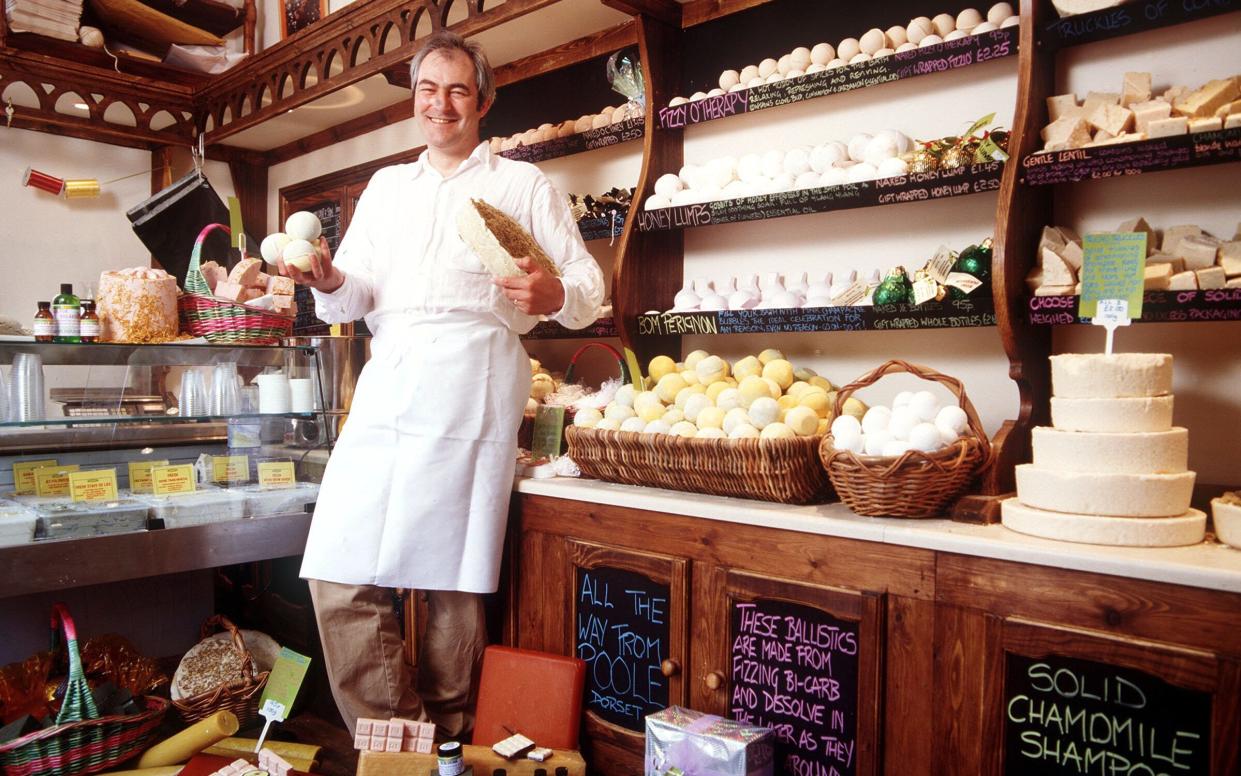
“In those days, when you went bust you couldn’t do a pre-pack [a form of insolvency under which the sale of a business is agreed with an administrator before it is formally appointed] and keep part of the business for yourself … all this stuff that The Body Shop is doing at the moment, which I still think is wrong.
“We all know what’ll happen, it’ll go down this far, then it’ll happen again. But it’s already on its last legs when there’s all this messing about while money men squeeze the lemon. I’ve never subscribed to the American attitude that going bust is ‘necessary’.”
Lush doesn’t have to worry about that at the moment. While other retailers withdraw, its shops can be seen, and likely smelt, on almost every high street or in every large train station in the country. Its bath bombs (invented in the garden shed by Mo) will always make fine last-minute gifts, but the discerning consumer’s priorities have also come to align with its ethos of all natural ingredients: no animal testing, minimal packaging and service with an often zany personal touch. “Some say too friendly,” says Constantine.
His diagnosis for the British high street boils down to two major issues. “The things that are most difficult are parking charges and business rates. If you’ve got shops where you don’t have to pay for parking, people are going to go to those places. But look at Birmingham Council, which has gone bust no matter how much it put up parking.
“It’s actually in the power of a government to sort out how they fund the council. But as long as you’ve got councils reliant on business rates and parking you’ve got a wrestle to the bottom. So when can it improve? As soon as that’s sorted.”
Despite “not feeling very Left wing”, Constantine has always voted for the Greens. He drops into a stage whisper and covers his mouth. “But I think they’re a shower … So I don’t have a clue. The current incumbents have badly let us down. Politics is in an awful state.” He’s never met Sir Keir Starmer, but took Rachel Reeves and her family out on a bird-watching boat off the coast of Dorset once. Constantine showed the shadow chancellor’s son a hornbill. And did Reeves collar him for his support? “Oh, I managed to avoid her afterwards,” he laughs.
He is an unusual businessman in so many ways, from taking 4pm baths (“statistically, most people start to make really poor decisions after 3.30pm or 4pm, so stop working then and get in the bath”), to never driving a car (he cycles or gets lifts instead), to teasing the vegans in his own workforce (he’s a pescatarian, “they call me a fish and chipocrite, because I eat fish,”), and being such a passionate twitcher that he’s been known to leave meetings midway through if he’s alerted about an unusual sighting in the region.
But Lush is also unashamedly activist, protesting against everything from fox-hunting to the death penalty in the US. But Lush is also an unashamedly activist brand, protesting against everything from fox-hunting to the death penalty in the US. In 2018, the company was criticised – not least by the Police Federation – for campaigning to bring about justice for victims of the so-called “spy cops” scandal with slogans in store and mocked-up police tape bearing the words “police have crossed the line” in shop windows. The hashtag #FlushLush, urging people to abandon Lush products, later trended on social media.
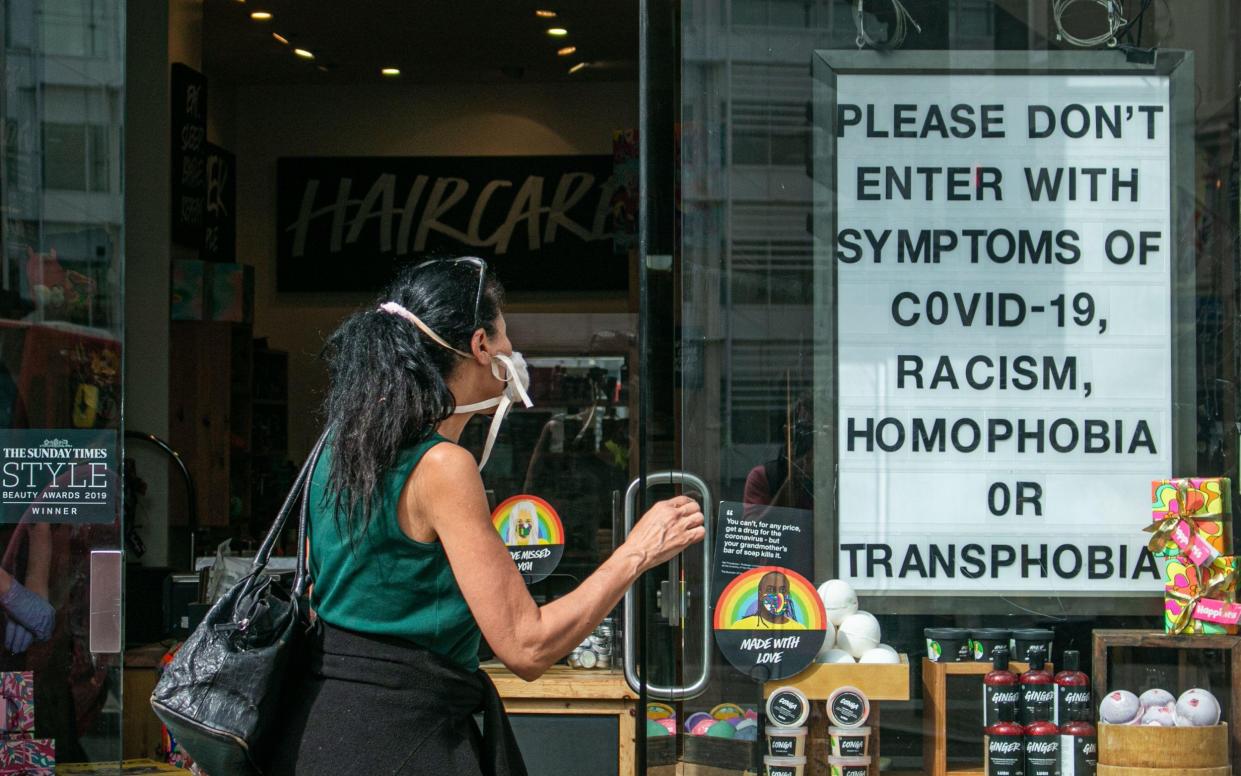
Between 2017 and 2018, Constantine also donated money to help establish Extinction Rebellion. “I haven’t been involved with them [recently]. It seemed a bit religious at the beginning. I like what we do politically, so there’s always something we’d be willing to stop the traffic for, but I don’t like picking on, say, a journalist or politician and waiting outside of his house, I think that takes it too far. I’ve never liked it with animal rights activists either. What I really like is democracy.”
He and Mo have lived in the same five-bedroom house in Weymouth for 42 years, and don’t plan on changing that, no matter how many hundreds of millions they earn. Surely he’s been tempted by Sandbanks, the millionaire’s row down by Poole Harbour that’s now the fourth most expensive place to live in the world?
“I have. But have you ever looked at how bad the people’s tastes are who live in Sandbanks? I rest my case. And no one’s ever there, no neighbours.”
So he spends relatively little on himself, but funds various bird conservation projects in Dorset, including reintroducing the osprey. He also ensures Lush gives millions to causes every year from homeless shelters to care homes. This year it will donate its 100 millionth pound.
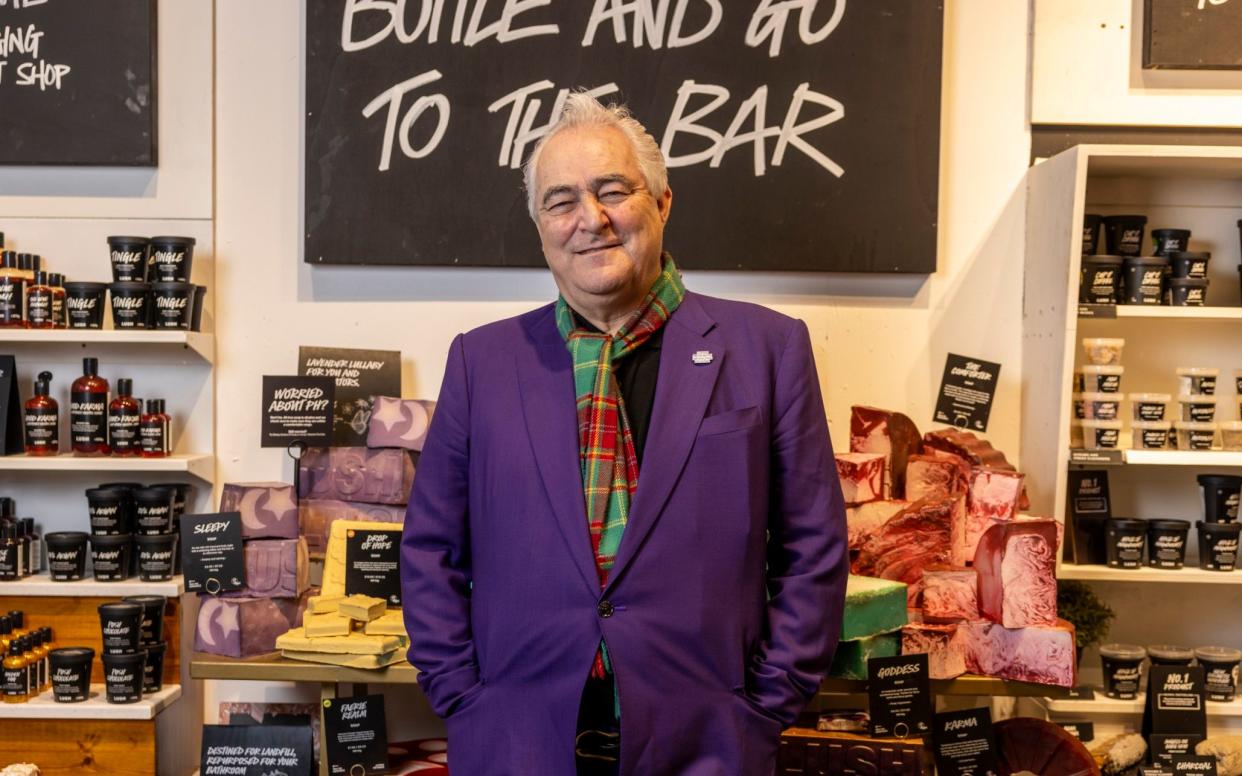
And at 71, he still works more than ever, texting employees at 4am and following the example of Paul Smith by working on the shopfloor as often as possible. “And why wouldn’t you, if you’re fortunate enough to have all these lovely shops?” Constantine says. “I’ve always believed retirement’s bad for your health.”
I note that his children are all qualified to perhaps take the reins one day. Does the “S” word come up? “That bloody television programme. It created havoc in my life. I’m not him [Logan Roy] and my family’s not like that … I don’t know, and it might be self-interest, but do succession plans ever work? I think businesses are more in danger of them, as some arrogant so-and-so thinks they know best for the future. But I may be slightly biased.”
So Mark Constantine will keep going, as he’s always done. One thing he’s planning, he says, is a book of business poetry. The most popular poem for a long time in Britain was Rudyard Kipling’s “If”.
“And that line ‘If you can meet with Triumph and Disaster / And treat those two impostors just the same’, that’s probably true at every turn really, isn’t it? You shouldn’t let yourself get too caught up in success because it’s an illusion, and shouldn’t get too caught up in the opposite either.”
It’s a healthy perspective, for a self-professed massive egotistical k---head. He might need a new badge.


